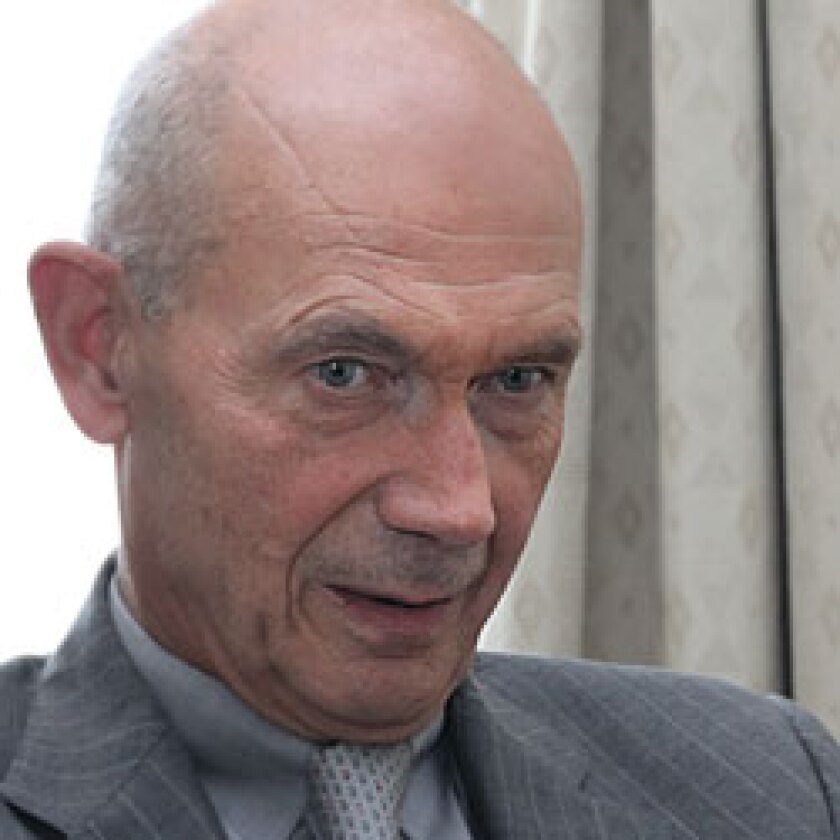The race to become the new head of the World Trade Organization enters the final strait in a five-month contest in which Latin America has a one in three chance of securing the high-profile position.
Nine candidates are vying to replace Pascal Lamy as director general of the WTO, the international arbiter of trade disputes and forum for agreeing new rules on trade.
Three of the nine candidates are from Latin America: Anabel Gonzalez, Costa Rica’s trade minister; Roberto Carvalho de Azevedo, Brazil’s representative to the WTO; and Herminio Blanco, who led the Mexican delegation in the 1995 Uruguay trade round.
Ricardo Melendez-Ortiz, chief executive of the International Centre for Trade and Sustainable Development (ICTSD), a Geneva based think tank, said the three Latin Americans were all “highly competent”.
“They are all highly connected and well respected at a global level,” he told Emerging Markets. “But they come from very different countries and different background in terms of their engagement with trade policies.”
He said the trade system needed to inject “new blood” to revive a system that had been stuck in a rut since the trade talks round launched in Doha in 2001 had run into the sand.
“The selection of the new DG has probably never been so important – and to have someone who is highly competent, diplomatically skilled and who can take the initiative to move things forward,” said Melendez-Ortiz, who was Colombia’s negotiator at the Uruguay round.
The selection process comes at a time when many commentators are casting doubt on the ability of the WTO to cope with a complex world of globalized supply chains and overlapping regional and bilateral trade deals that hardly existed when the WTO’s predecessor, the General Agreement on Tariffs and Trade, was set up in 1947. Carolyn Deere-Birkbeck, a senior resear- cher at Oxford University’s Global Economic Governance Programme, said races to head international organisations were dominated “not by merit, but by politics”.
“At the WTO, the political manoeuvring is even more complex due to a web of alliances on specific issues of trade negotiation and other regional and bilateral trade arrangements among members,” she said.
So far the candidates have stayed quiet since giving briefings at the WTO in January that kicked off the process. However Gonzalez told the Center for Global Development last month she might back “other formats” to replace the cumbersome one country-one vote process that had made agreement hard. “It would be great if the members could advance in tandem on all issues.”
Melendez-Ortiz compared the race to the papal election process, which culminated this month in the accession of Jorge Bergoglio, the former archbishop of Buenos Aires, to the papacy.
The candidates campaign until the end of this month and then a “troika” of ambassadors of Sweden, Pakistan and Canada survey all 159 members though a process known as “confessionals” to gauge the level of support for candidates.
“The whole thing is done through consultations and there are three or four iterations during which the troika works out which candidates each member could not live with,” said Melendez-Ortiz
He said it was impossible to identify a front-runner now. “Some countries may have a clear idea of which candidates they want to see in the end-game but no one has put their cards on the table,” he said. “It is a very tough race.”
However he played down the idea that the Latin American region would move behind one candidate as many countries within the region had wholly different agendas to their immediate neighbours.
- Like every year, Emerging Markets daily newspaper covers the Inter-American Development Bank’s annual meeting, held in Panama in mid-March. Pick up your copy at the meeting, read the news on our website and follow us on twitter @emrgingmarkets
